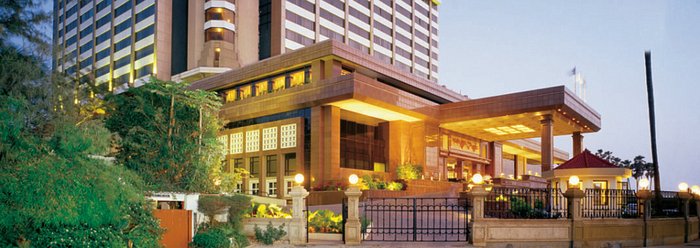Mumbai’s Taj Bandstand to Redefine City’s Skyline
In a momentous revival for Mumbai’s heritage, the iconic Sea Rock Hotel, a symbol of the city’s glamour and glitz in the 1980s, is set to rise again—but this time, under the brand of the prestigious Taj Group. The hotel, which shut its doors after the devastating 1993 Bombay blasts, is being reimagined as Taj Bandstand, marking a major addition to Mumbai’s rapidly transforming skyline.
A significant step towards the hotel’s resurgence was taken on Monday, with a bhoomipujan ceremony that marked the formal commencement of construction. The hotel will be developed by Indian Hotels Company Limited (IHCL), the parent company of Taj Hotels, which has long been an integral part of the city’s luxury hotel scene. The Taj Mahal Palace Hotel, another jewel of the Taj Group, was famously attacked during the 26/11 Mumbai attacks, further cementing the Group’s resolve to bolster the city’s infrastructure and tourism offerings. Built by the Luthria brothers in 1978, the Sea Rock Hotel was a landmark on the Bandra waterfront, famed for its revolving restaurant and luxurious hospitality, frequented by Bollywood celebrities and the elite of Mumbai. Over the years, it became notorious for the dark episode in 1984, when underworld don Samad Khan allegedly tortured and murdered businessman S.K. Jain within the hotel’s walls.
Despite these challenges, the Sea Rock Hotel remained a defining feature of Mumbai’s social and economic fabric until the 1993 bomb blasts, which heavily damaged the property and led to its eventual closure. After passing through several ownerships, including a notable acquisition by Suresh Nanda in 2005 and a major investment by Taj Hotels in 2009, the Sea Rock’s transformation into Taj Bandstand was formally announced. The hotel will rise to a height of 165 meters, featuring 335 rooms and 85 luxury apartments, along with world-class amenities and services. It will also house a convention centre, which is expected to significantly boost Mumbai’s status as a convention capital of India, as Chief Minister Devendra Fadnavis emphasized during the bhoomipujan.
The hotel’s surroundings will undergo a complete overhaul, with plans for public parks, a jogging track, and an amphitheatre designed for community access, all contributing to the transformation of the Bandra area into a hub for both luxury and leisure. This revitalisation aligns with the vision of Tata Sons Chairman N. Chandrasekaran, who lauded the project as a landmark addition to Mumbai’s skyline. The rise of Taj Bandstand will not only breathe new life into the once-iconic Sea Rock Hotel but will also serve as a catalyst for the further elevation of Mumbai’s global status. With its commitment to architectural excellence and community integration, this development will stand as a testament to the city’s resilience and future-forward vision.


